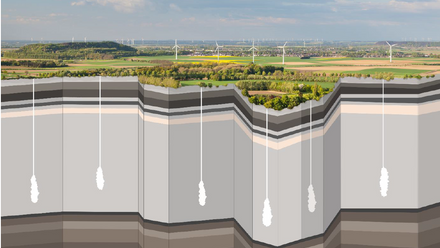Hydrogen cars versus electric. What are the main differences?

The transport sector contributes significantly to climate change through carbon dioxide (CO2) and greenhouse gas emissions. Electric vehicles (EV) and hydrogen vehicles provide opportunities to decarbonise the sector by reducing reliance on fossil fuels.
The rise of electric vehicles
The latest data from the Society of Motor Manufacturers and Traders (SMMT) shows significant trends in the UK vehicle market, reflecting the ongoing shift towards electric vehicles. EV registrations have continued to rise, making up approximately 20% of new car sales in 2024. This growth highlights the increasing consumer interest in sustainable transportation; however, challenges such as affordability and charging infrastructure remain barriers to wider adoption.
Despite this growth, petrol cars continue to dominate, accounting for around 55% of new registrations. Their lower upfront costs and familiarity make them an appealing choice for many buyers. Diesel vehicles, on the other hand, have seen a sharp decline and now make up less than 10% of the market as stricter regulations and environmental concerns drive consumers away from this fuel type.
The promise of hydrogen cars
H2-powered cars are gaining traction as manufacturers commit to this innovative technology as a future pathway for sustainable vehicles.
Offering a driving experience similar to that of petrol and diesel cars, hydrogen cars can be refuelled quickly at dedicated refuelling stations. This convenience is likely to appeal to consumers who may be hesitant about adopting the new habits associated with electric vehicle ownership.
Jay Chang, president and CEO of Hyundai Motor Company, says, “Clean hydrogen should be for everyone, powering everything, and available everywhere.”
BMW has echoed this view and is actively pursuing the green technology. Dr Milan Nedeljković, Member of the Board of Management at BMW, emphasised the importance of a combination of hydrogen and electric technologies for achieving net zero. He told Top Gear: “Hydrogen remains an important alternative, that’s why we have a fleet of hydrogen cars out testing and why we’re working intensively on improving the technology further. Alternatives need to be considered; that’s why we keep our facilities flexible to hydrogen and to other technologies.”
Honda has confirmed that it aims for 100% of its car sales to be either electric or hydrogen fuel cell technology by 2040.
Challenges
The refuelling infrastructure for h2 is significantly behind electric vehicle charging stations. There are over 36,000 charging locations for EVs across the UK, compared to only 16 hydrogen refuelling stations.
Andrew Willis from Toyota states that a lack of refuelling infrastructure is hindering wider adoption: “Refuelling is one of the key barriers to the growth in the volumes.”
However, investment is progressing globally, with new projects and funding initiatives emerging to bridge this gap.
Future trends
The hydrogen landscape is evolving rapidly, with new innovations and announcements being made regularly.
Leadership figures at Hyundai and Honda have estimated that by 2040, we will see widespread adoption of hydrogen cars. The realisation of this forecast depends on infrastructure development and significant reductions in manufacturing costs to make hydrogen cars more accessible and economically viable.
Additionally, Gas Distribution Network Wales & West Utilities (WWU) is trialling hydrogen fuel cell electric vehicles (FCEV) and supporting infrastructure as part of its efforts to decarbonise its fleet of 1,300 vans, which assist network engineers with service requests and maintenance tasks.
Stephen Offley, Transport Manager at WWU, said: “We are already paving the way for the role of hydrogen in heating homes and powering industry, so using hydrogen fuel to decarbonise our fleets is a logical step. Having test-driven the vans at First Hydrogen’s MIRA track event last year, we’re looking forward to trialling the FCEV in our day-to-day operations and pioneering the use of hydrogen within our fleet. In demonstrating the practicalities of hydrogen, we want to inspire other industries and businesses in Wales and across the UK to view hydrogen as a realistic, operationally effective zero-emission solution.”
Innovations
Innovations are essential in moving away from internal combustion engines, with battery swapping being one potential advancement for electric vehicles.
Ample, a team of technologists and designers, is exploring a scheme to accelerate the adoption of electric vehicles by addressing long recharging times through battery swapping. This involves replacing the battery of an EV in under 5 minutes, compared to up to 8 hours for a full charge.
Battery swapping could make EVs more competitive with hydrogen fuel cell vehicles by reducing charging times. However, experts predict potential resistance due to consumer concerns about battery quality and ownership issues, despite the time and maintenance cost savings this technology could offer.
The role of gas engineers
Gas engineers will play a critical role in implementing hydrogen technology in the UK.
Many consumers may have limited knowledge about hydrogen vehicles, and the gas industry will be pivotal in educating the public and fostering confidence in hydrogen technology. Gas engineers will be instrumental in sharing their expertise on handling and managing hydrogen safely.
Summary
The debate over whether hydrogen cars will overtake electric vehicles is complex and ongoing within the automotive industry. The future of sustainable transportation may not be an exclusive competition between hydrogen and electric vehicles. Instead, there is growing recognition that both technologies could coexist, offering consumers choices that align with their needs and preferences.
Developing infrastructure for both technologies will require significant investment and several years of progress, with many advocating for government support to expand charging points and refuelling stations.

![Steel [canva]](https://www.igem.org.uk/static/50be7f75-c475-4a0a-9980bc2553030d23/resourcegridlistingimagedefault_4d12532919c64e60a22baf03232bbf94_4a7c7e45a350/Steel-canva.png)

![Mountains [canva]](https://www.igem.org.uk/static/0d138f41-6894-416a-b2ecb49adeb8ba37/resourcegridlistingimagedefault_4d12532919c64e60a22baf03232bbf94_4a7c7e45a350/Mountains-canva.png)


